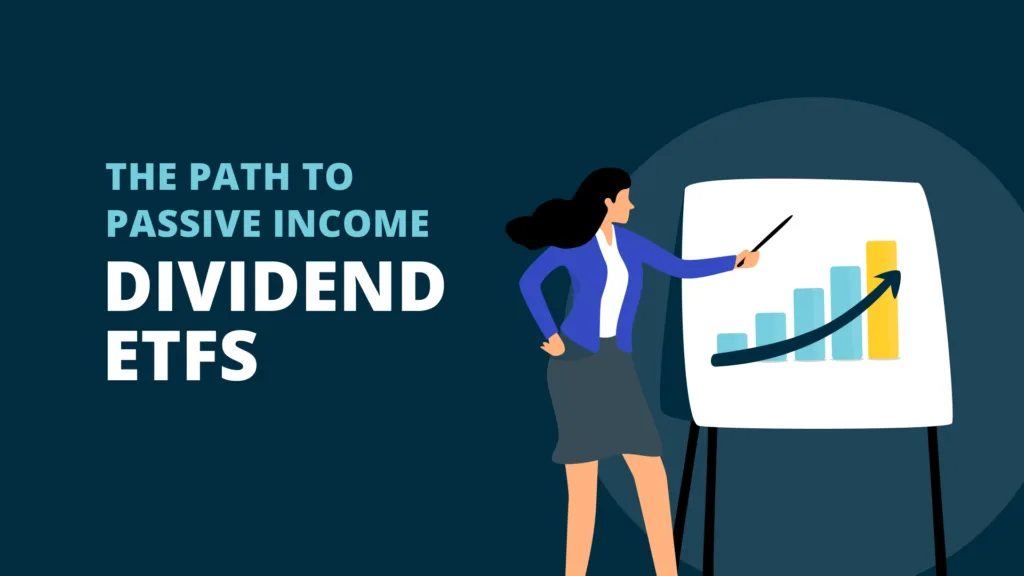A steady flow of money without active work: A dream that can become reality with astute investments in dividend ETFs.
In the current market environment, dividends are emerging as an important and potential source of income. In particular, investors who tended towards growth and speculative ventures during the low interest rate era are now facing challenges. Many stocks are off their previous highs and rising interest rates are dampening enthusiasm for the stock market. The result: Investors are withdrawing their money. However, in times of high inflation, fixed deposit accounts, even at 3-4%, are more likely to lead to a subtle erosion of purchasing power than to serve as a robust investment.
This shift puts the spotlight on companies that may not have been on investors’ radars before, but which have stable, and ideally non-cyclical, business models. These so-called quality stocks are often characterized by shareholder-friendly dividend policies that consistently pay – and ideally increase – dividends.
The art of discovering lucrative dividend stocks
Start-ups still in their growth phase and not yet turning a profit tend to preserve their cash reserves rather than distributing them in the form of dividends to shareholders. That’s why it’s crucial to carefully evaluate companies. Sectors like healthcare, finance, energy, and consumer staples are known to have companies that offer regular dividend payouts. These sectors are often characterized by firms with solid, established business practices and consistent profits. However, just because a company has paid dividends in the past doesn’t mean this trend will necessarily continue in the future.
Easy entry with ETFs
You don’t have to wade through a flood of search and financial portals to find these quality stocks yourself. Dividend ETFs offer a straightforward alternative, facilitating diversification across different industries and regions. In this approach, the focus can be specifically placed on quality stocks with dividend payments.
Investors can now tap into dividend options for well-known indices like the MSCI World, the FTSE All World, or the Stoxx Global. The Xtrackers Stoxx Global Select Dividend 100 Swap UCITS ETF offers a concise global portfolio with a mere 100 positions. This ETF’s foundation, the STOXX Global Select Dividend 100 Index, showcases leading dividend-yielding companies from the STOXX Global 1800 Index, spanning North America, Asia, and Europe.
For investors looking for a broader scope, the Vanguard FTSE All-World High Dividend Yield UCITS ETF is worth a glance. This ETF invests in over a thousand companies known for their above-average dividend yields. Companies expected not to distribute dividends in the next 12 months or those whose dividends were special payouts are excluded.
Conclusion: High-dividend companies or ETFs offer investors the prospect of regular income.
In economically uncertain times, companies with stable business structures come to the forefront of investors’ attention. These quality stocks typically also offer dividend payments, making them attractive to investors seeking regular distributions. However, even these stocks cannot escape the general market trend. For those who shy away from the effort of selecting individual stocks and want to reduce the risk of loss through broader diversification, considering dividend ETFs like the Xtrackers Stoxx Global Select Dividend 100 Swap UCITS ETF and the Vanguard FTSE All-World High Dividend Yield UCITS ETF might be worth exploring.

René Louis Delrieux
René is a member of the BISON team, working in the securities department. He specializes in the analysis and selection of investment solutions in the field of securities, ETFs and portfolio strategies. Prior to joining BISON, he worked at comdirect and onvista bank. When he's not immersed in the world of finance, you can find René jogging in norther Germany or enjoying a glass of rosé.
The information and opinions provided in this article are for general information purposes only. It does not constitute investment advice, a recommendation or an offer to buy or sell shares, ETFs or other financial instruments. Any investment involves risk, including the risk of total loss. Before making any investment decision, you should always conduct your own research, inform yourself about the risks involved and, if necessary, consult financial advisors or professionals to ensure that the investment strategy you choose is appropriate for your individual objectives and risk tolerance. The risk and responsibility for all your investment decisions lies solely with you.
